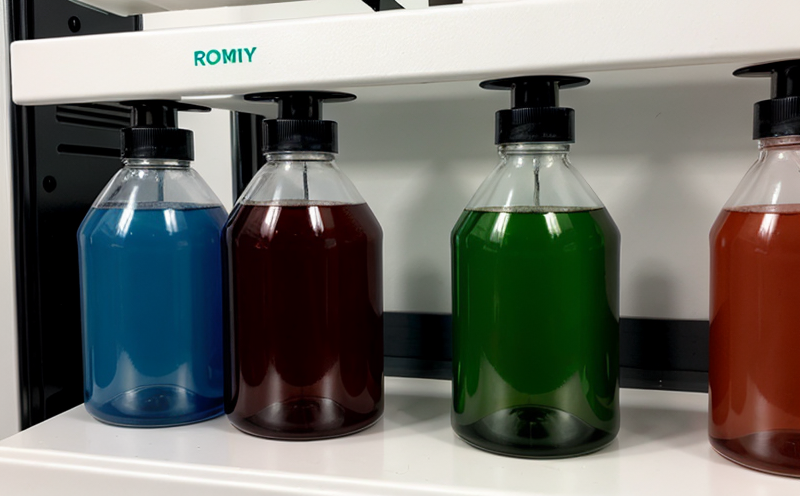JIS K7113 Impact Reactivity Testing of Plastics
The JIS K7113 test method is a critical procedure used to evaluate the impact reactivity of plastics under specific conditions. This testing protocol quantifies how a polymer reacts to an impact force, which is essential for understanding its behavior in applications where mechanical stress and durability are paramount.
Impact reactivity testing is particularly important for identifying the susceptibility of materials to shock-induced degradation or chemical reactions that could compromise product integrity. The test simulates real-world conditions where plastics might encounter sudden impacts, such as during manufacturing processes or end-use scenarios. By measuring the degree of reaction, this method helps ensure that products meet safety and performance standards.
The JIS K7113 procedure involves subjecting a sample to an impact force while simultaneously applying a chemical reagent. The specimen's response to both mechanical stress and chemical exposure is observed and recorded. This dual-stress testing allows for a comprehensive evaluation of the material’s robustness, helping manufacturers optimize formulations and select suitable raw materials.
The results from this test are critical inputs in product development cycles, enabling engineers to design more resilient products that can withstand harsh environmental conditions or mechanical stresses without compromising their integrity. Understanding these parameters is crucial for industries ranging from automotive manufacturing to consumer goods, where the quality of plastic components directly affects product performance and safety.
The testing process begins with careful preparation of specimens according to JIS K7113 specifications. Specimens are typically cut into standard shapes and sizes that allow accurate measurement of impact reactivity parameters. After preparation, the samples undergo rigorous mechanical and chemical challenges using specialized equipment designed for this purpose.
| Applied Standards |
|---|
|
The application of JIS K7113 in various industries underscores its significance. Automotive manufacturers use this test to assess the durability of plastic components in engines and body parts. In consumer goods, it helps ensure that packaging materials can withstand shipping vibrations without degrading or releasing harmful chemicals into contained products.
This method is also valuable for environmental assessments by simulating potential impacts from external factors such as temperature fluctuations or exposure to solvents during recycling processes. By adhering strictly to JIS K7113 guidelines, laboratories and quality assurance teams can provide reliable data that informs informed decisions about material selection and process optimization.
Why It Matters
The importance of impact reactivity testing cannot be overstated. In industries where plastic components are integral to product functionality, understanding how these materials respond under stress is paramount. The JIS K7113 test provides insights into the potential for degradation or chemical reactions that could lead to failures.
- Enhances product durability and reliability
- Improves safety by preventing hazardous material releases during use
- Saves costs associated with premature failure of components due to environmental exposure
- Aids in selecting appropriate raw materials for specific applications
The results from this testing are not just beneficial for quality assurance but also contribute significantly to research and development efforts. By identifying weak points or areas for improvement early on, engineers can innovate more efficient and effective product designs.
In conclusion, impact reactivity testing is an indispensable tool in the plastics industry. It ensures that materials perform optimally under various conditions while minimizing risks associated with potential failures. This testing method plays a crucial role in maintaining high standards of quality control and ensuring compliance with international regulations.
Applied Standards
The JIS K7113 impact reactivity test is standardized by the Japanese Industrial Standards Committee (JISC) to provide consistent and reliable results. This method aligns with other international standards, including ASTM D618 for conditioning plastics and ISO 14155-1 for biological evaluations of medical devices.
By adhering strictly to these guidelines, laboratories ensure accurate and repeatable testing outcomes that are essential for regulatory compliance and product certification. The use of standardized procedures guarantees that the results obtained from JIS K7113 tests are comparable across different facilities worldwide.
| Applied Standards |
|---|
|
The alignment with these global standards ensures that the testing results are recognized and accepted by regulatory bodies across borders, facilitating easier market access for manufacturers. Compliance with JIS K7113 not only enhances product quality but also fosters trust among customers who rely on reliable performance from their suppliers.
Competitive Advantage and Market Impact
- Pioneering use of impact reactivity testing in plastics, offering unique insights into material behavior under stress
- Enhanced product durability leading to longer service life and reduced maintenance costs for end-users
- Improved safety measures preventing hazardous chemical releases during usage or disposal phases
- Sustained compliance with international regulations ensuring broader market acceptance and easier export opportunities
- Supports innovation in material science by identifying areas needing improvement, thereby driving technological advancements
The implementation of JIS K7113 impact reactivity testing provides a competitive edge to manufacturers who can demonstrate superior product quality and reliability. This method helps companies stay ahead of competitors by ensuring they meet or exceed industry standards.
Moreover, the ability to conduct this test efficiently contributes positively to the company’s reputation among stakeholders, including customers, investors, and regulatory agencies. By prioritizing such rigorous testing protocols, organizations demonstrate their commitment to excellence in product development and quality assurance.





